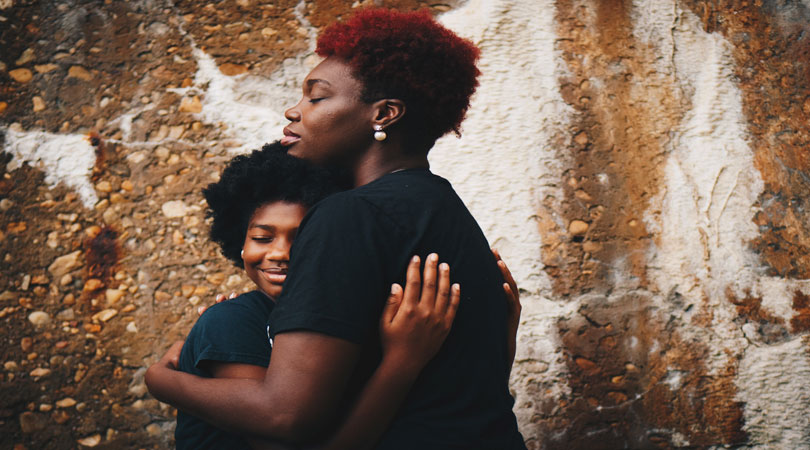
15 Jan How to Help Your Children Grieve After the Death of a Loved One
Losing a loved one is hard on the whole family. Whether the death was anticipated or sudden and unexpected, it’s hard to adjust to the absence of someone close. One of the hardest parts of grieving is helping children process the loss while you yourself haven’t come to terms with it. However, it’s important that children are included in the grieving process in an age-appropriate way so that they, too, can heal.
What is Grief?
Rather than a single emotion, grief is the complex emotional response people experience after the loss of someone close. While grief looks different from person to person, it’s often explained as occurring in five stages:
1. Denial is a state of shock and numbness where the death doesn’t seem real.
2. Anger is when intense pain is misdirected and expressed as anger.
3. Bargaining is believing that if something had been done differently, your loved one would still be here.
4. Depression is what most people imagine when they think of grieving. It’s characterized by intense feelings of sadness, emptiness, and longing.
5. Acceptance doesn’t necessarily mean moving on. Rather, it’s when depression begins to be replaced by an understanding that life without your loved one is the new reality.
How Do Children Grieve?
While the five stages ring true for many adult mourners, they don’t always resonate with children’s experience of loss.
According to Hello Grief, toddlers and preschool-aged children can’t fully comprehend death. While they may realize that a person is gone, they don’t understand its permanence. Despite having limited understanding of death, they may experience emotional outbursts or increased attachment following the loss of a loved one. When talking to young children about death, parents should avoid euphemisms like “sleeping” or “passed away” and stick to literal terms that children can understand.
Once children reach school-age, they realize that death is a permanent state. However, they may express magical thinking about the loss, according to Michigan State University Extension. Magical thinking could manifest as children believing they are to blame for the death or that they, too, might die soon. At this age, children should be included in family mourning rituals including funerals if they so choose. While many parents feel an urge to protect children from the realities of death, engaging children in the grieving process allows a healthy outlet for their emotions.
During the teenage years, children process death similarly to adults. However, since teens are characterized by strong emotions and poor impulse control, they’re at risk of expressing their feelings in unhealthy ways. Grieving teens could turn to drugs, alcohol, or risky sexual behavior in response to grief, so it’s important that parents stay engaged in their teen’s life following a loss.
How Can Families Grieve Together?
It’s clear that parents need to play an active role in helping children grieve, but what exactly does that look like? And how can parents guide their children’s grief when they’re suffering their own? The answers aren’t easy, but they’re important:
● Answer questions. This is probably your child’s first encounter with grief, and they’re going to have questions. Answer as honestly as possible using age-appropriate language, and try to remain calm so they don’t feel guilty for asking.
● Make mourning a family affair. If children feel shut out of the grieving process, they may turn to less healthy coping mechanisms. Not all children will want to participate in funeral services, but embrace the presence of those who do.
● Share memories. Happy memories are the bright spots in grief that keep us going. Talk about the person who died when you feel ready to, and encourage children to share their feelings.
You never expect to have to explain death to your children, but loss can happen at any time. Whether it’s an aging grandparent or a friend lost to substance abuse, your child is going to experience strong and confusing emotions. As a parent, it’s up to you to guide those feelings in a healthy, healing direction.
About the Author
Jenny Wise created Special Home Educator as a forum for sharing her adventures in homeschooling and connecting with other homeschooling families.
Website: http://specialhomeeducator.com/


